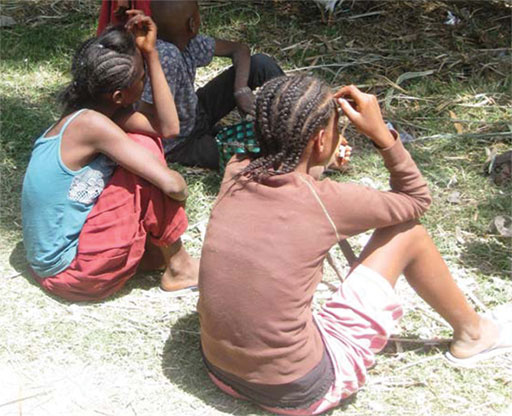8.4 Role of gender in determining hygiene and sanitation behaviours
Gender plays a particularly significant role in hygiene and sanitation interventions. It is therefore important that we pay it particular attention in any behaviour analysis.
Some people may have difficulty in understanding exactly the difference between sex and gender. ‘Sex’ refers to a person’s biological status and is typically categorised as male or female. There are a number of indicators of biological sex, including sex chromosomes, internal reproductive organs and external genitalia. ‘Gender’ refers to the roles, behaviours and activities that a given society considers appropriate for males and females. In other words, ‘sex’ refers to biological differences between men and women and ‘gender’ refers to social and cultural differences.
While planning hygiene and sanitation promotion, you should consider that women, girls, men and boys all have different needs which must be identified and addressed. In hygiene and sanitation, gender makes a difference to:
- the way people are affected by a situation, especially access to latrines and hygiene facilities
- their attitudes, opinions and the way they see a situation
- whether they are more or less likely to support change
- their role, influence and ability to act.
Now read Case Study 8.1 and answer the question that follows.
Case Study 8.1 A teenage girl’s dilemma
Tirunesh is a teenage girl who started her periods about two years ago. She finds it embarrassing to go to school when she is having her period because her school does not have a separate latrine for girls. Moreover, her mother does not consider it particularly important to spend money on sanitary pads, preferring to keep her at home during her period to help look after her younger siblings. For these reasons, Tirunesh misses about five days of school every month, and now she is falling behind in her studies (Figure 8.8).

Explain why Tirunesh’s dilemma is a gender issue.
Girls all over the world have periods, but in the society in which Tirunesh lives, it is not considered important by her mother to provide her with sanitary pads in order that she should go to school every day, even during her period. This is a gender issue because it is her gender that makes it less likely that she will successfully complete her education.
8.3 Gathering information using a situation analysis
